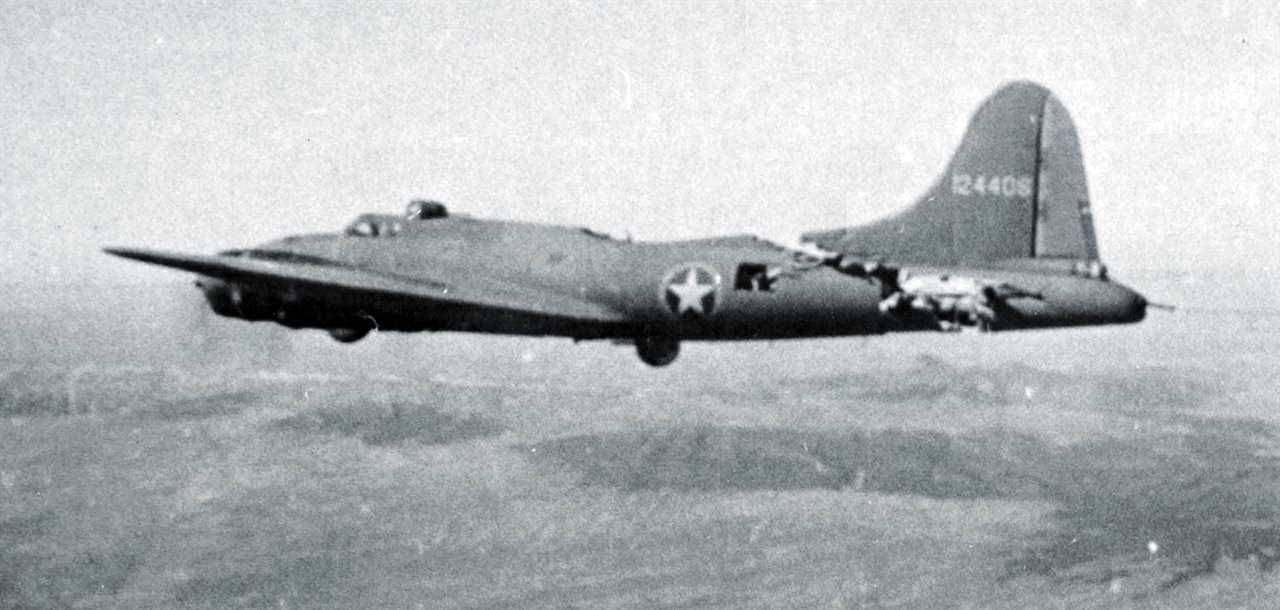
Everyone needs some good luck in life, but that that was especially true for those who lived and fought through World War II. I recently opened a diary of a German frontline soldier and found, carefully taped to the first page, a dried four-leaf clover. I’m glad to report the soldier survived, because his letters and diaries made him seem like a decent fellow. It got me thinking about the nature of luck in war. Some years ago, I went to Wolfsburg in Germany, home of the Volkswagen, but also of Jupp Klein, a former Fallschirmjäger (paratrooper) and veteran of long years in the war in Russia, Sicily, and Italy. Did he remember his first time in combat, I asked? Yes, he replied. He’d just arrived at the front and immediately came under fire from heavy mortar shelling by the Red Army. He was in a slit trench with two other men, he in the middle. When it was over, he discovered both his comrades were dead, but he had not suffered a scratch. “I was lucky,” he told me.
Later he was standing in the ruins of Cassino in Italy. “Suddenly, something made me hit the ground,” he said. “A sixth sense. A split-second later, a shell hurtled right over my head.” That sixth sense, he reckoned, had only come from experience. That had not been luck.
Statistics don’t lie, and infantrymen had a bum deal, make no mistake. Allied infantry in northwest Europe, for example, statistically had no chance of getting through unscathed, although, of course, plenty did. Ray Saidel was the only man of some 40 frontline servicemen I talked to about their experiences in Italy who came out without a scratch. He’d been in the 1st Armored Infantry Regiment. Eugene Sledge was one of eight men who was still standing in his company after going through Peleliu and Okinawa. Why him? And why did Ray survive unblemished when statistically he had no right to do so? Was it a sixth sense for self-preservation? Or pure luck?
A little while ago, at the wonderful National World War II Museum in New Orleans, I caught up with Ken Beckman, aged 100. He had been a bomber navigator in the Eighth Air Force. Not any old navigator either, because Ken was so good at his job, he’d become the youngest major in the Eighth and by the war’s end had chalked up 48 combat missions, which certainly defied the statistics of survivability. “When people ask me how I’ve made it to a hundred,” he said with a grin, “I always say it’s down to pure luck.”
Hmm, I wondered. Ken had joined the Eighth in the fall of 1943, literally the worst possible time. The air force was suffering such terrible casualties that statistically it was impossible to complete even 25 missions. When Ken’s squadron went out on the second Schweinfurt raid on October 14, 1943, his ship was one of only two to make it back. He told me the story of how one time they’d been due to bomb an airfield in Holland. As lead navigator, he got them to the target all right, but the lead bombardier dropped too early and so they missed completely. Later, on his second tour in the latter half of 1944, Ken’s aircraft had been badly shot up and urgently needed a place to land. “We came down on the very same airfield in Holland we’d been due to smash up six months earlier,” he said, chuckling. “Quite by chance. As I said, I was lucky.”
Surely, though, I suggested, experience must have helped him? He shrugged. He wasn’t the pilot. And not many survived two tours. “It was luck, that’s all.” Maybe he’s right. Or maybe a combination of good fortune and experience saw him through. Clearly, a four-leaf clover cannot save anyone, but the other statistics don’t lie either; many did defy the odds and survive. Maybe some people simply are born lucky and that’s all there is to it.
this article first appeared in world war II magazine
See more stories
SubscriBE NOW!
Did you miss our previous article...
https://lessonsbeyondthestory.com/lessons-learned/how-a-young-winston-churchill-survived-ambushes-and-firefights-and-found-a-taste-for-fame






